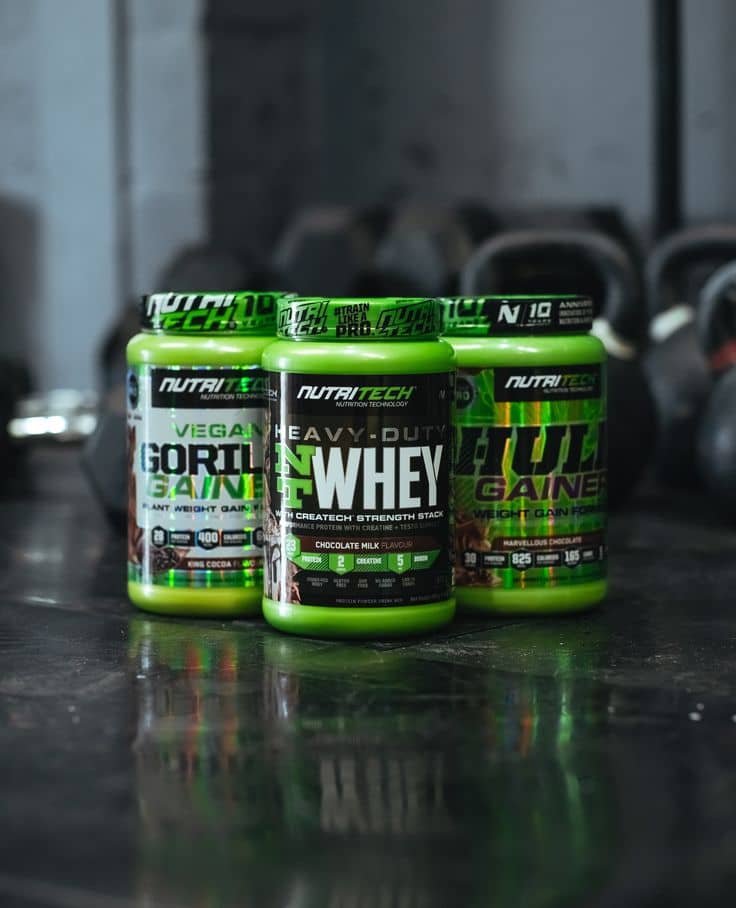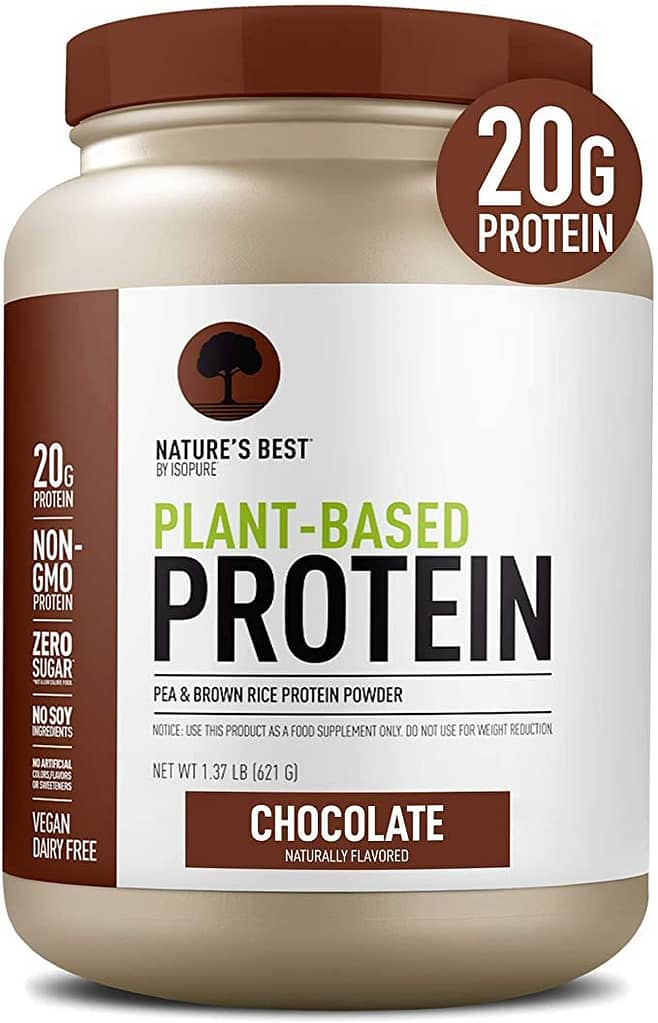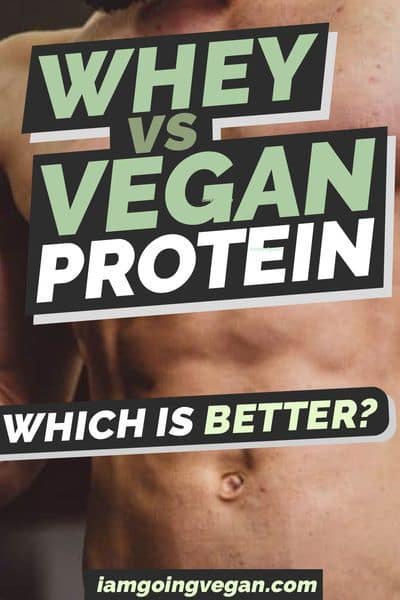Imagine you’re standing at the edge of a vast ocean, waves crashing against the shore. Just like this endless expanse of water, your body is constantly in need of nourishment to sustain your strength and vitality. Protein is that crucial resource—it’s the building block of your muscles, the fuel that powers your workouts, and the repairman that mends your body after those intense training sessions. But with so many options available, how do you choose the right protein for your fitness journey? Today, we’re diving deep into the world of whey protein and plant-based protein to see which one comes out on top!
What is Whey Protein?

Whey protein is derived from milk, specifically the liquid that separates during cheese production. It’s known for being one of the most effective protein sources for muscle recovery and growth. But why is it so popular among bodybuilders?
Nutritional Profile
Whey protein is a complete protein, meaning it contains all nine essential amino acids your body needs but can’t produce on its own. A typical serving of whey protein (about 30 grams) offers around 20-25 grams of protein, minimal fat, and negligible carbs. This makes it a go-to choice for those looking to boost their protein intake without adding excess calories.
Benefits for Muscle Building
The benefits of whey protein go beyond just numbers. Its fast absorption rate means your muscles get the nutrients they crave almost instantly after a workout. This leads to quicker recovery and growth, making it a staple in many athletes’ diets. Additionally, whey has been shown to increase muscle protein synthesis, making it a powerful ally in your bodybuilding arsenal.
What is Plant-Based Protein?



On the flip side, we have plant-based protein, which comes from various sources like peas, hemp, brown rice, and soy. With the rise of veganism and plant-based diets, these proteins have gained tremendous popularity, and for good reason!
Nutritional Profile
Plant-based proteins are often a mix of different sources to ensure you’re getting all the essential amino acids. For instance, pea protein combined with rice protein creates a well-rounded profile that rivals whey. A standard serving typically contains 15-20 grams of protein, depending on the source.
Benefits for Muscle Building
While some plant-based proteins may not be as quickly absorbed as whey, they still provide significant benefits. They’re packed with fiber, which aids in digestion and helps keep you full longer. Plus, many plant-based proteins come with added vitamins and minerals that support overall health.
Comparing Protein Quality
Complete vs. Incomplete Proteins
One of the primary differences between whey and plant-based proteins lies in their protein quality. Whey protein is a complete protein, while many plant-based options are considered incomplete because they lack one or more essential amino acids. However, by combining different plant sources, you can achieve a complete amino acid profile.
Amino Acid Profiles
When comparing amino acid profiles, whey protein generally has higher levels of branched-chain amino acids (BCAAs), particularly leucine, which plays a critical role in muscle protein synthesis. Plant-based proteins, while lower in BCAAs, can still effectively support muscle growth, especially when consumed in adequate amounts.
Digestibility and Absorption Rates
Whey protein is absorbed more rapidly by the body than most plant proteins, which means it’s more effective immediately post-workout. However, some individuals may find that they digest plant-based proteins better, particularly those with lactose intolerance or dairy allergies.
Health Benefits of Whey Protein

Muscle Recovery and Growth
As previously mentioned, whey protein is an excellent choice for muscle recovery. Its fast absorption means it gets to work quickly, helping to repair muscle fibers and stimulate growth after your workouts.
Immune System Support
Whey protein is rich in immunoglobulins and lactoferrin, which can help boost your immune system. Regular consumption may help keep you healthier, allowing for more consistent workouts and less downtime.
Potential Downsides
However, whey protein isn’t without its drawbacks. Individuals with lactose intolerance may experience digestive discomfort when consuming whey, and some people may develop allergies. It’s essential to choose a protein that aligns with your personal dietary needs.
Health Benefits of Plant-Based Protein

Heart Health and Cholesterol Levels
One of the significant advantages of plant-based proteins is their positive impact on heart health. Many plant proteins are low in saturated fats and cholesterol, making them a heart-friendly option. Additionally, they often contain beneficial nutrients like fiber and antioxidants.
Anti-Inflammatory Properties
Plant-based proteins have been associated with reduced inflammation in the body, which can be particularly beneficial for those engaging in intense training. Foods rich in antioxidants help combat oxidative stress, supporting overall health and recovery.
Environmental Considerations
Choosing plant-based protein can also be a more sustainable option for the environment. The production of plant proteins generally requires fewer resources and emits less greenhouse gases compared to animal-based proteins.
Who Should Choose Whey Protein?
Ideal Candidates
Whey protein is perfect for athletes and bodybuilders who are looking to enhance their muscle mass and improve recovery times. It’s also a suitable option for individuals who do not have lactose intolerance or dairy allergies.
Situations Where Whey is Beneficial
If you need a quick protein boost post-workout, whey protein shakes are incredibly convenient. They mix well with water or milk, making them an easy addition to your fitness regimen.
Who Should Choose Plant-Based Protein?
Ideal Candidates
Plant-based protein is ideal for vegans, vegetarians, or anyone with dietary restrictions, such as lactose intolerance. It’s also a great choice for those looking to incorporate more plant-based foods into their diets.
Situations Where Plant-Based Options are Preferred
If you’re looking for a protein source that’s easier on the digestive system or has additional health benefits beyond just muscle building, plant-based protein is an excellent choice.
Taste and Mixability
Flavor Profiles of Whey vs. Plant-Based
Whey protein often comes in a variety of delicious flavors like chocolate, vanilla, and strawberry, making it a popular choice for shakes. Plant-based proteins, while improving in taste over the years, can sometimes have a grainier texture or earthy flavor. However, many brands are now offering flavored options that are just as tasty.
Texture and Mixability in Shakes
In terms of mixability, whey protein usually blends smoothly with liquids, creating a creamy texture. Plant-based proteins may require a bit more effort to mix thoroughly, but using a blender can solve this issue.
Cost Analysis
Price Comparison
When it comes to pricing, whey protein tends to be more affordable than many plant-based proteins, especially when purchased in bulk. However, prices can vary significantly based on brand and quality, so it’s always worth shopping around.
Value for Money
In terms of value for money, whey protein often provides a higher protein content per serving, which can make it more economical for those strictly focused on muscle gain. Plant-based proteins, while sometimes pricier, offer additional health benefits that may justify the cost for some consumers.
Cost per Gram of Protein
The cost per gram of protein can vary depending on the specific brand and product you purchase, but here’s a general comparison:
| Protein Type | Price per Pound ($ ) | Serving Size (g) | Protein per Serving (g) | Cost per Gram of Protein ($/g) |
| Whey Protein | 10-20 | 25 | 20-25 | 0.01-0.01 |
| Plant-Based Protein | 12-25 | 30 | 15-22 | 0.01-0.02 |
Export to Sheets
Key takeaways:
- Whey protein generally has a lower cost per gram of protein compared to plant-based protein.
- However, the price difference can be minimal depending on the specific product.
Additional Considerations
- Taste and mixability: Whey protein is generally considered to have a better taste and mixability compared to plant-based protein. However, there are many plant-based protein powders on the market that have improved significantly in taste and mixability in recent years.
- Additional ingredients: Some whey and plant-based protein powders may contain additional ingredients, such as sweeteners, thickeners, and artificial flavors. These ingredients can add to the cost and may not be necessary for everyone.
Overall
The best protein powder for you will depend on your individual needs and preferences. If you are on a tight budget, whey protein may be a more cost-effective option. However, if you are looking for a plant-based option or have dietary restrictions, there are many high-quality plant-based protein powders available.
Consumer Preferences and Trends
Popularity of Each Protein Type
As the fitness industry evolves, both whey and plant-based proteins have their loyal followers. However, the trend towards plant-based diets is on the rise, leading many brands to expand their offerings in this category.
Market Trends and Shifting Attitudes Towards Protein
With an increasing number of consumers seeking cleaner, more sustainable protein sources, plant-based options are gaining traction. This shift reflects a broader awareness of health and environmental issues, making it essential for brands to adapt accordingly.
So, which is better—whey protein or plant-based protein? The answer ultimately depends on your personal goals, dietary restrictions, and lifestyle choices. Both have their unique benefits and drawbacks. Whey protein excels in muscle recovery and quick absorption, while plant-based protein offers versatility, digestive ease, and environmental sustainability.
Ultimately, the best choice for you will depend on your individual needs. By understanding the strengths and weaknesses of each, you can make an informed decision that aligns with your health and fitness goals.
FAQs
- Can I mix whey protein with plant-based protein?
- Yes! Combining both can provide a balanced amino acid profile.
- Is plant-based protein suitable for muscle gain?
- Absolutely! With proper combinations, plant-based protein can effectively support muscle growth.
- How much protein do I need daily?
- This varies based on your activity level and goals, but a general guideline is 0.8 to 1 gram of protein per pound of body weight for athletes.
- Are there any side effects of whey protein?
- Some individuals may experience digestive issues if they are lactose intolerant.
- Which protein is better for weight loss?
- Both can be beneficial, but plant-based protein may offer additional benefits like fiber that can aid in satiety.
